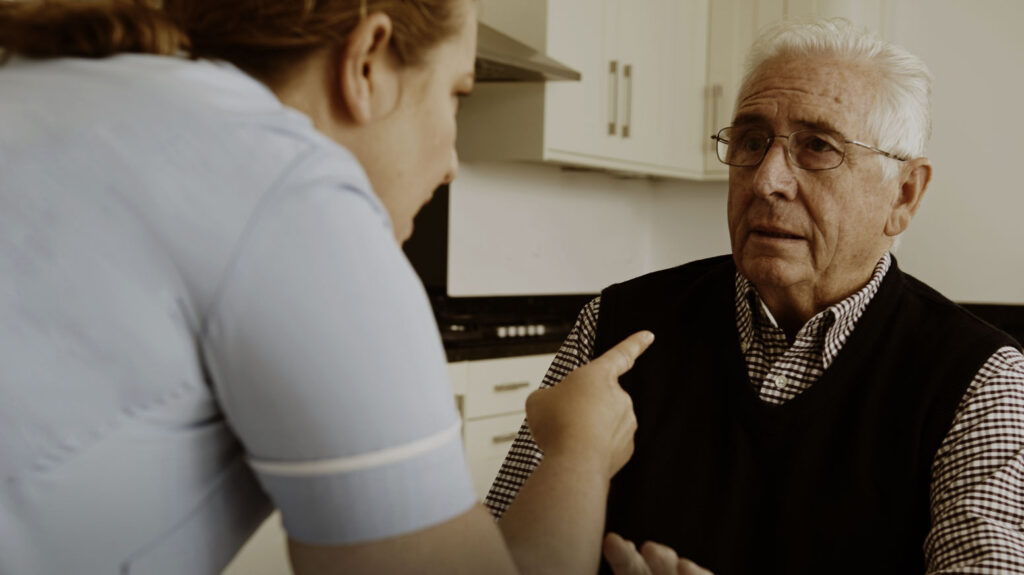Wilton Nursing Home Neglect
Need a Wilton Nursing Home Neglect lawyer?
If you or a loved one suffered nursing home neglect—you may be entitled to compensation. Nursing Home neglect claims can be complex, but Etemi Law has the experience to guide you through it. We’re committed to helping nursing home neglect victims get the justice and compensation they deserve.
Call us today at (203) 409-8424 for a


The Reality of Nursing Home Neglect
A nation’s greatness is measured by how it treats its weakest and most vulnerable members. Over time, elder care in America has shifted—from the hands of loving families to the hands of large corporations. And while corporations prioritize profits, the care of our elderly too often becomes secondary.
Today, thousands of long-term care facilities across the U.S. house millions of elderly residents. Tragically, neglect, abuse, and injuries are a persistent—and growing—problem. As your trusted Wilton nursing home neglect lawyer, Etemi Law is here to protect your loved ones and hold negligent facilities accountable.
What Is a Nursing Home Neglect Lawsuit?
A nursing home neglect lawsuit is a legal action taken when a long-term care facility fails to provide the standard of care that the law requires, resulting in injury or death to a resident. As your Wilton nursing home neglect lawyer, Etemi Law handles cases involving:
Bed sores and pressure ulcers due to failure to monitor, treat, or diagnose wounds
Over-medication used to chemically restrain or sedate residents
Assaults, including those by staff or other residents
Falls and injuries caused by inadequate supervision and safety measures
If your loved one has been harmed due to a facility’s negligence, you may have grounds for a lawsuit. A knowledgeable Wilton nursing home neglect lawyer from our team can help you take action.
Who Can File a Nursing Home Neglect Claim in Wilton?
In Connecticut, the resident themselves (if capable) or their legal representative—such as a guardian, conservator, or estate executor—can file a claim. In the case of death, surviving family members may receive compensation.
An experienced Wilton nursing home neglect lawyer from Etemi Law will:
✅ Review medical records and facility documentation
✅ Coordinate with healthcare and elder care experts
✅ Determine liability and identify responsible parties
✅ Handle probate and legal procedures, if needed
You focus on your loved one’s safety—we’ll handle the legal fight.
What Damages Can a Wilton Nursing Home Neglect Lawyer Help You Recover?
Neglect in nursing homes can lead to serious physical and emotional harm. Compensation in a successful case may include:
Costs for medical treatment and rehabilitation
Pain and suffering of the resident
Loss of quality of life and emotional trauma
Funeral and burial expenses, if neglect led to death
Punitive damages for gross misconduct or abuse
Our role as your Wilton nursing home neglect lawyer is to ensure your family receives the justice and financial relief you deserve.
Why You Need a Wilton Nursing Home Neglect Lawyer
Nursing home corporations and their insurers often attempt to downplay or cover up abuse and neglect. They may offer low settlements that don’t reflect the seriousness of the harm done.
With Etemi Law by your side, a skilled Wilton nursing home neglect lawyer will:
Investigate all aspects of the incident
Preserve critical evidence, including surveillance and logs
Coordinate with health authorities and regulatory agencies
Aggressively negotiate—or take your case to court
We fight for the dignity and rights of every elder who has been harmed. We do not back down.
Contact a Trusted Wilton Nursing Home Neglect Lawyer Today
If you suspect that a loved one is being mistreated in a nursing home, take immediate action. Report the abuse to the appropriate authorities—and contact Etemi Law without delay.
📞 Call
📨 Email us directly
💻 Submit our Free Case Evaluation Form
Let a dedicated and compassionate Wilton nursing home neglect lawyer at Etemi Law protect your loved one’s rights and help you seek full and fair justice.
On a warm summer night in Wilton, crowds spill through Wilton Center for concerts and seasonal festivals, and traffic along Route 7 takes on a different tempo. For nursing home residents and staff, those rhythms matter: longer ambulance routes when streets narrow, altered transport windows for outpatient therapy, and extra foot traffic that can complicate routine pickups. I look at how these local patterns shape care logistics.
Transfer chains often run from a Wilton facility to Norwalk Hospital or Danbury Hospital for emergency imaging or overnight observation, then back for skilled nursing and physical therapy. I examine typical interfacility transfer times from the town — how an ambulance or a stretcher lift at the Wilton Train Station arrival can delay rehab schedules — and how nursing staff coordinate with therapists to preserve mobility goals after hospital stays.
In and around the Weir Farm National Historic Site and the quiet residential streets that feed seasonal events, common injury patterns emerge: falls during crowded evening gatherings, medication mishaps after disrupted routines, and pedestrian incidents near busy intersections. These incidents influence care plans — prompting short inpatient stays, targeted rehab sessions, and sometimes longer skilled nursing stays if mobility or cognition is affected. I report on how local geography shapes those clinical pathways.
Families in Wilton deserve clear accounts of how a night concert or a late train arrival can ripple through a nursing home’s schedule: altered discharge rides, delayed therapy, and changed staffing demands. I speak with administrators about contingency transfer plans and how on-site rehab teams shift schedules after event nights so therapy goals aren’t lost in the shuffle. This is about anticipating care logistics, not promising outcomes, and keeping residents’ recovery on track.
